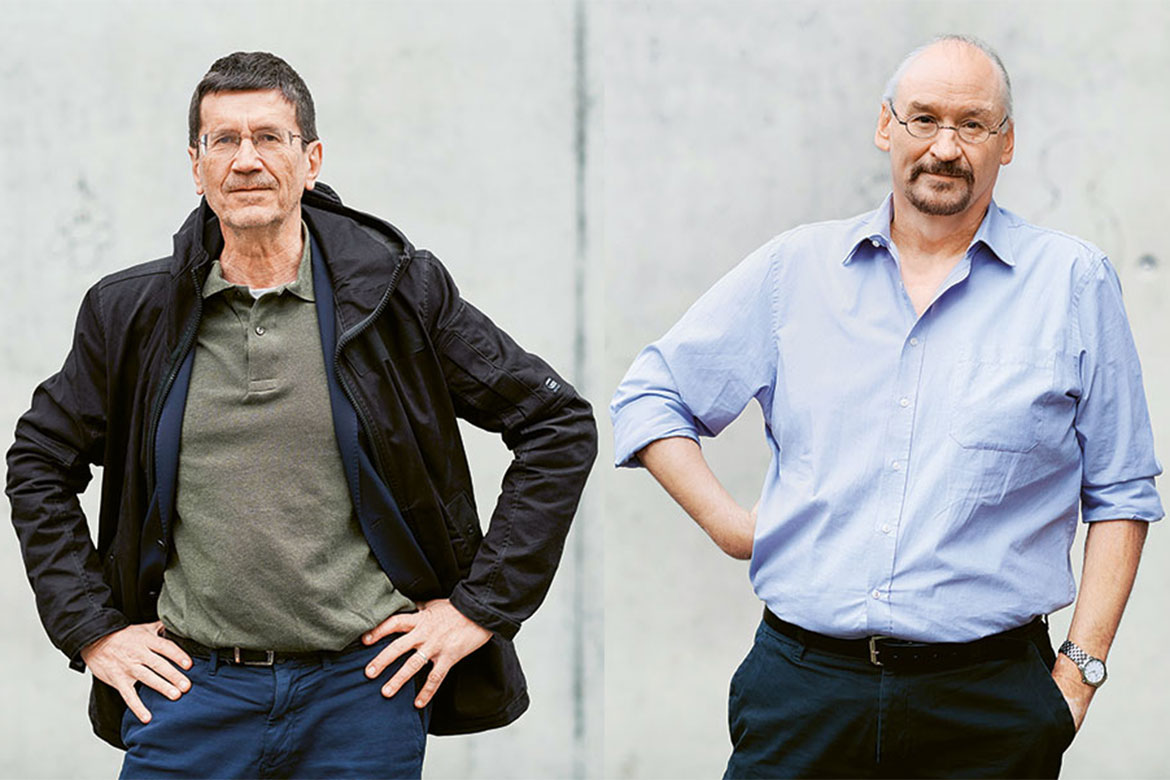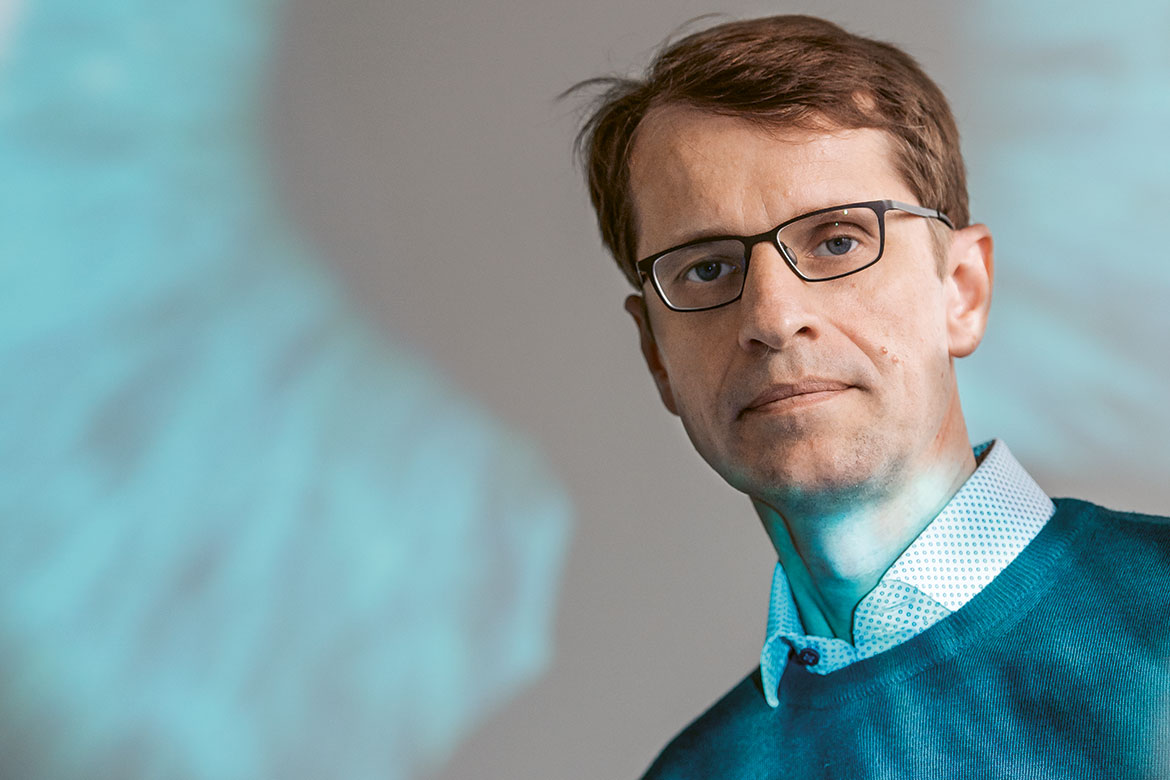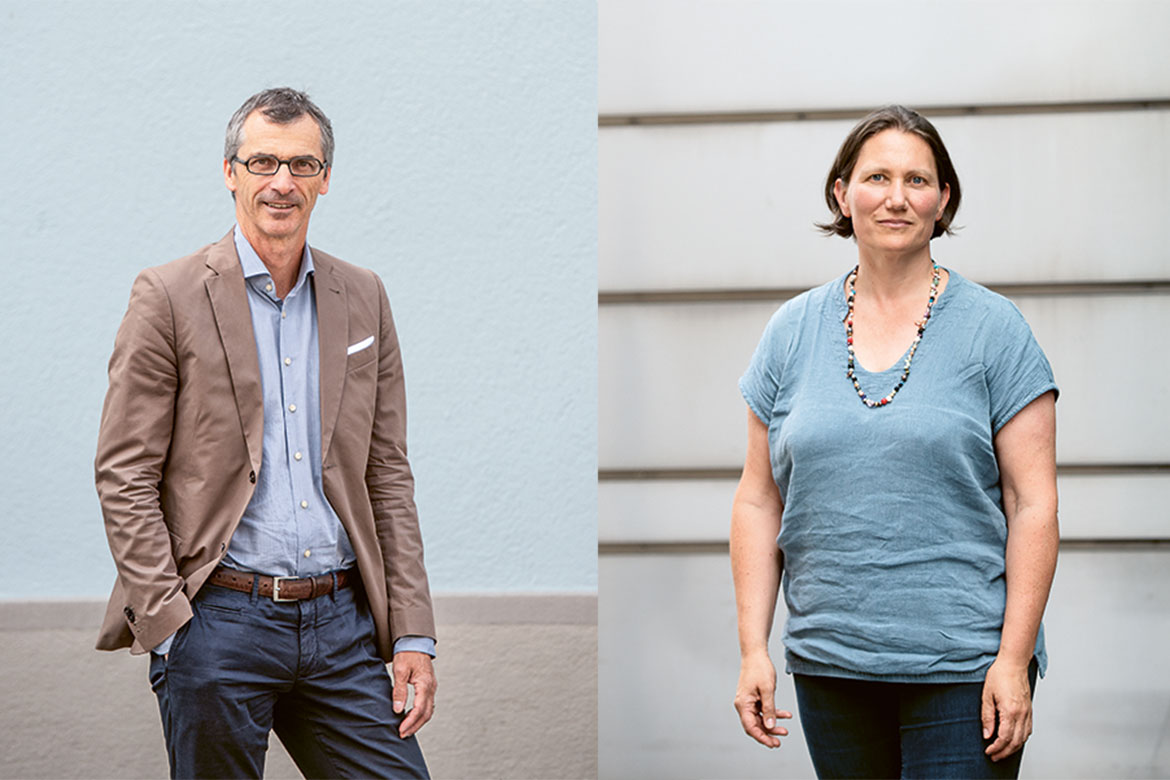Six innovative Swiss video games – from farm simulators to back exercises
Swiss-made video games are receiving international recognition. The gaming scene has become a laboratory for new ideas.

Evolution for beginners
Here, you have to breed your own animals so that they survive. Niche is about genetics, heredity and evolution. Its cute animals don’t always have the best of prospects. The rabbits can end up in the fangs of predators, suffering certain death. So your animals have to evolve quickly in order to defend themselves against natural enemies, and to survive illness and climate change. If you’re unpractised, then your animals will often perish.
Players learn which characteristics are advantageous and how you can develop them better. This game itself evolved – out of the bachelor and master projects of Philomena Schwab at the Zurich University of the Arts. And it’s put her on the Forbes list of the 30 most influential Europeans in the high-tech sector under the age of 30.
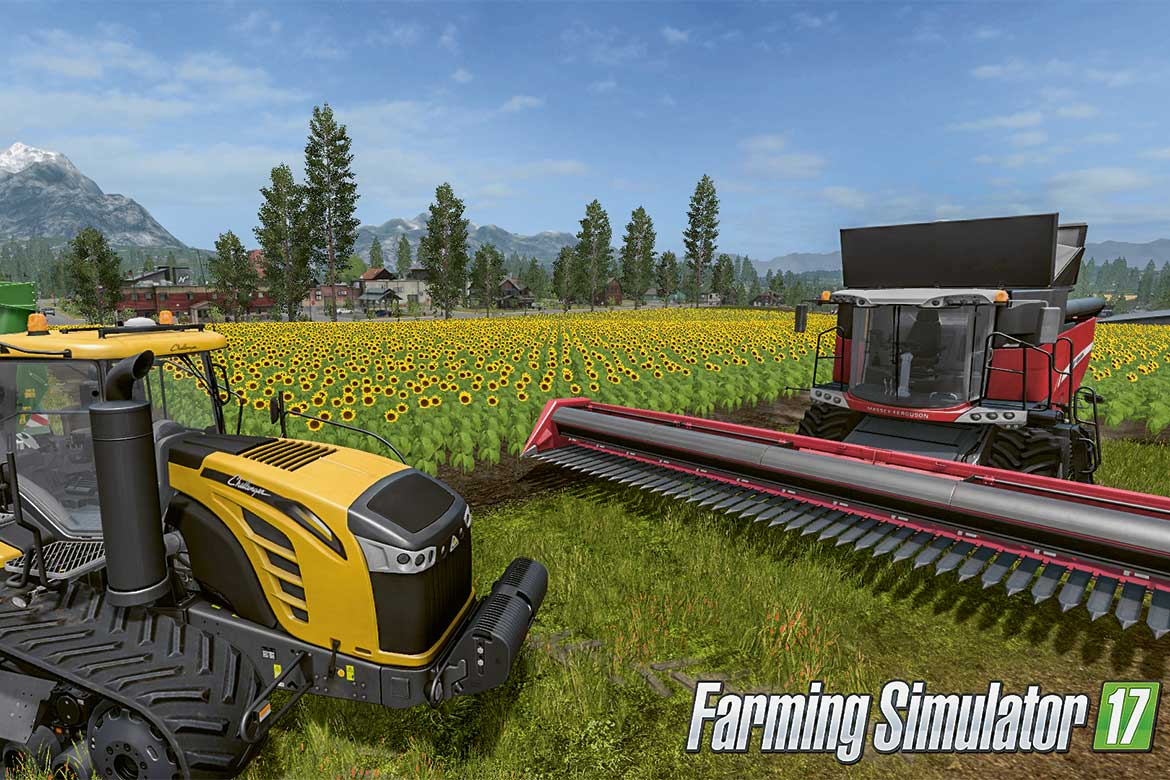
A virtual farm
On a virtual space of four square kilometres, you can play at being a farmer on your own farm. In other words, you have to cultivate fields, manage woods, and run the cowsheds – sowing, dunging and harvesting, looking after sheep, cows and pigs, selling crops and animals, sorting out your finances, buying machinery, and employing your farmhands to their best advantage. The high level of attention to detail is fascinating, especially in the machines. When you play, you enter ever deeper into this calm, artificial world far from all real-world problems like herbicides and factory farming.
It all started when a friend of the software developer Stefan Geiger of Giant Software began to get interested in agriculture. He wanted to drive around a farm on a virtual tractor. That was ten years ago. Today, Farming Simulator is a hit, with a million sales in a month.
In the new version (17), the developers have responded to requests from fans. Besides three new fertilisation levels, they’ve also incorporated the opportunity to integrate self-built vehicles in the farming world, such as a sugar beet harvester.
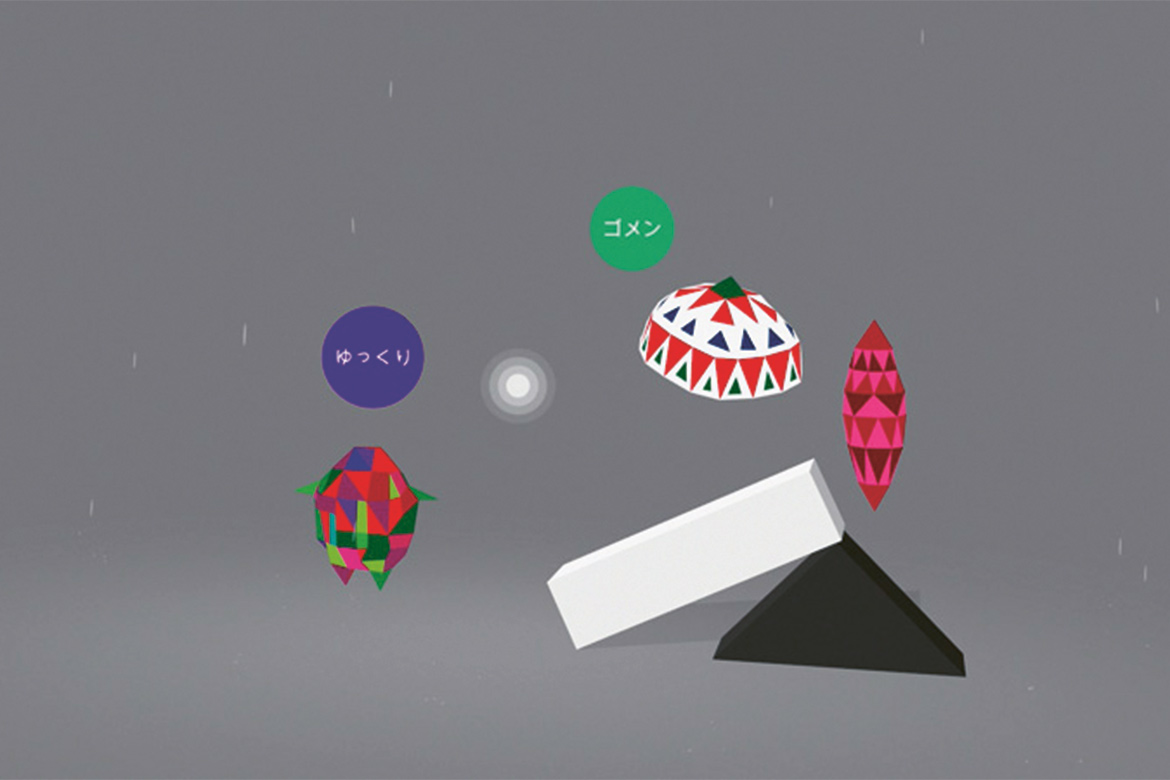
Solving problems in 19 languages
Your task is simple. You have to pile up large, differently sized cuboids and cylinders. You’re in a mock laboratory that’s a world of experimentation and that’s constantly expanding. But you’re not just struggling against physical phenomena like gravity or treacherous magnetic fields. Dreii has a deeper intention. Because you reach a point in the game where you can’t get any further: there’s a block that’s just too heavy to lift on your own. You’re now dependent on others. “In this manner, the players can learn unconsciously that helping each other will be rewarded”, says Christian Etter of the Zurich-based design company Etterstudio. “We human beings have to develop a new form of self-understanding”.
The players can choose from expressions in 19 languages to communicate with each other – ranging from Arabic to Hindi to Swiss-German. This, too, is a symbol that we can be part of a global identity without losing our local identity. With its simple, clear lines, Dreii was inspired by the pared-down characteristics of Swiss Design.
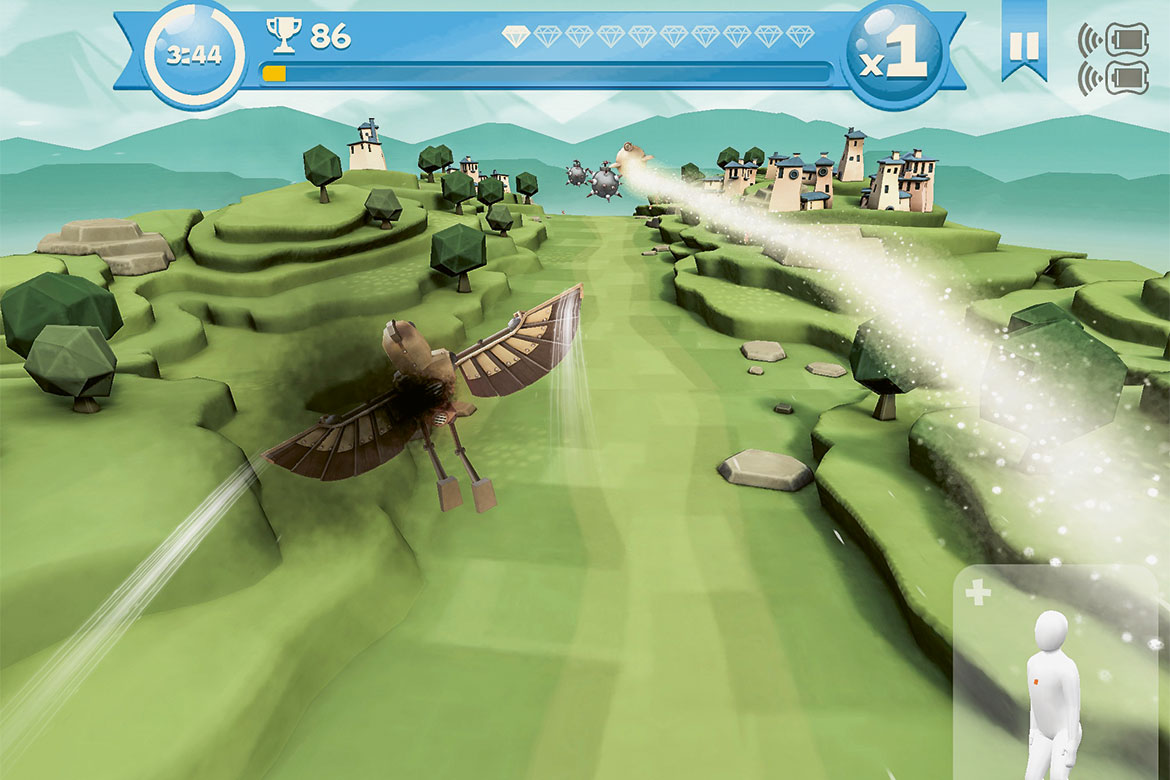
Flying for better health
With Valedo, the developers at the Zurich-based company Hocoma have created a playing interface for an ambitious back training programme that can keep its users in the right mood. You clip two movement sensors to your chest and lower back, start the software on your tablet, and then begin training. Using Bluetooth, the sensors convey your body positions during your exercises to an avatar on the screen. This cute little flying robot then shows you how well you’re carrying out any one of the 50 exercises it’s got programmed.
While you’re crossing a canyon or swimming through an underwater world, avoiding all obstacles, the avatar copies all your movements with its wings. The more often you train, the more complex the exercises become. A kind of guiding beam shows you the way; if you follow it precisely, then you get more points. It functions like a simple reward system. “The game helps to motivate you”, says Mike Fuhrmann of Hocoma. It’s a truly successful form of gamification.
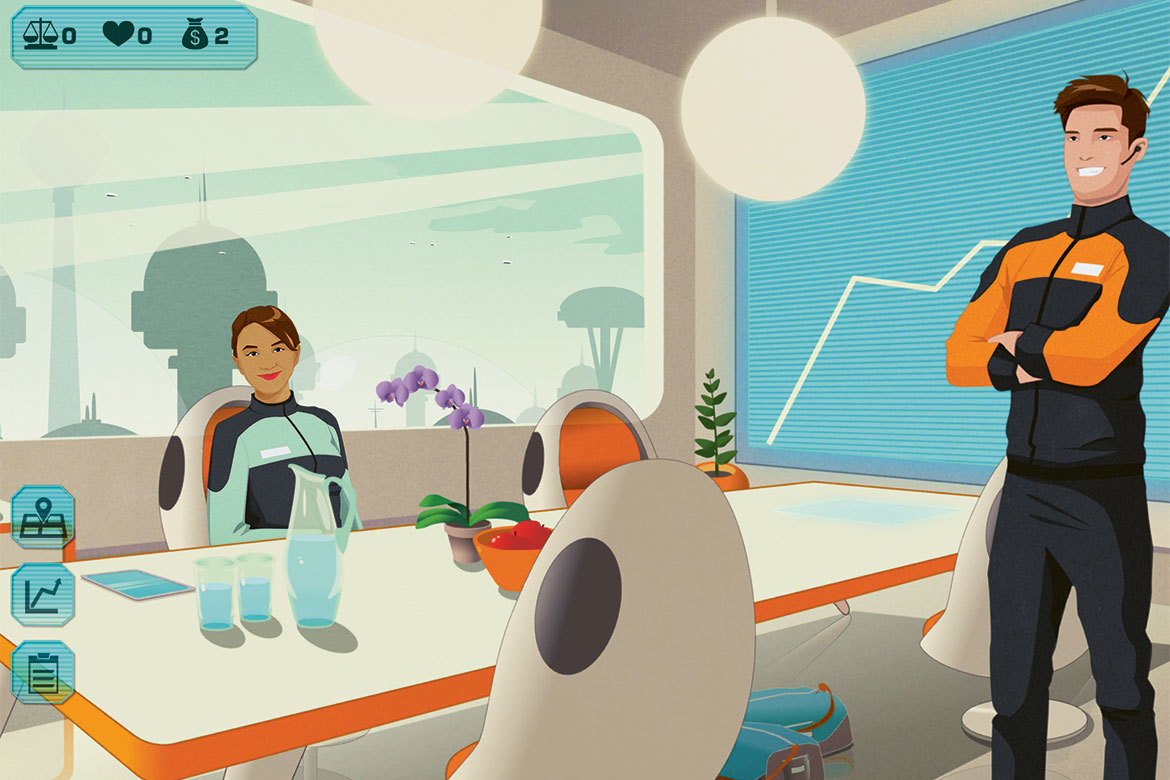
Fun as a bank manager
How can we promote ethical behaviour in business? The so-called ‘serious game’ Ufin functions solely via dialogue in which the players are the managers of an interplanetary bank and play to collect information. There’s a branch of the bank where things have been going wrong, and your goal is to get it running properly again. You have to assess the situation: financial figures might have been falsified, employees are having personal problems, and it’s even possible that there’s been major fraud.
As the branch manager, you’re under pressure to deliver results. Your boss wants a report with three suggestions for improvement. If they’re not good enough, you might be fired. “The aim of the game is not to collect as many points as possible, but to deliver this report”, says the game’s co-developer Markus Christen from the University of Zurich. The players have to make numerous moral decisions. They are enticed to sniff around in the private affairs of their employees, for example. After the game is over, the players get feedback on their behaviour during the game. “We suspect that the learning effect is greatest when people discuss their behaviour afterwards in the real world”, says Christen.
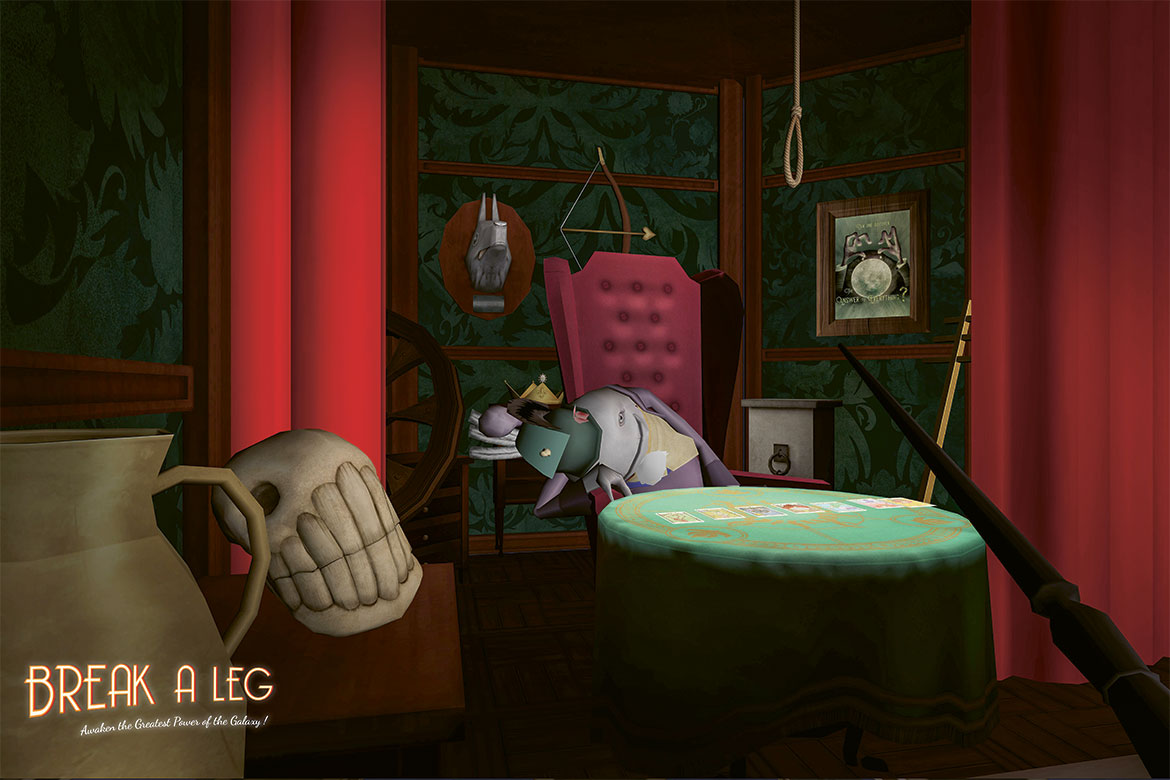
Conjuring in a virtual world
As soon as you put on your virtual reality glasses in Break a Leg, you find yourself on stage, surrounded by strange beings that you have to entertain with all kinds of magic tricks. The players tread in the footsteps of famous magicians such as Harry Houdini. You’ve been kidnapped by aliens, and you have to use your magic talents to help them release the most powerful forces in the Universe.
What is especially convincing is the game’s new manner of interactive story-telling. New challenges lurk in every corner of your world. The game designers from the Swiss start-up Apelab call their platform ‘spatial stories’. They all studied at the Geneva University of Art and Design (HEAD). “It’s not just about transforming the images into 3D”, says Michaël Martin of Apelab. “The player can decide where he wants to look. That changes everything”.
Hubert Filser writes regularly for the Süddeutsche Zeitung and lives in Munich.


